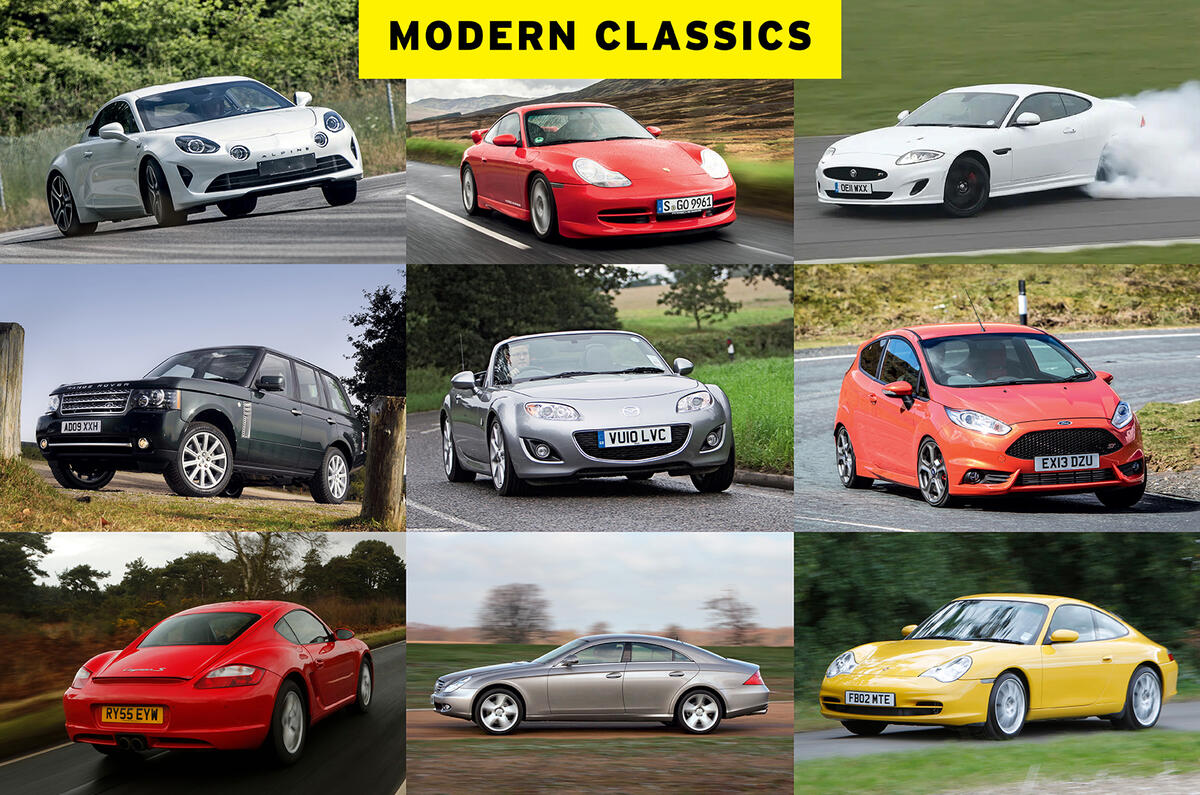The must-have modern classics to buy now before prices surge
Legendary and thrilling cars with a whiff of nostalgia for affordable prices. Where’s the catch?

News
10 mins read
2 August 2024
Share
The term ‘modern classic’ may well be an oxymoron. And to the uninitiated, even the best modern classic car could be mistaken for just another piece of street furniture.
But if the expression is good enough for Penguin Publishing, frankly it’s good enough for us. I for one can certainly see the parallels between a Mercedes G-Wagen and The Great Gatsby, a Lamborghini Diablo and A Clockwork Orange and a Lada Niva and Animal Farm.
In years gone by, the word ‘classic’ conjured images of old boys in MGBs, en route to the Dog and Duck’s annual autojumble. Modern car mags and websites stuck well clear of the word.
Related articles
- Best hot hatches – driven, rated and ranked
- The best hybrid SUVs – PHEVs and regular hybrids rated
- The best pick-up trucks – driven, rated and ranked
- The best estate cars – driven, rated and ranked
- The best hybrid cars: PHEVs and regular hybrids rated
At the same time, classic car publications were keen to not alienate their audiences with cars whose readers might think were better suited to a McDonald’s car park.
But today electric cars, clean air zones and speed cameras are battering enthusiasts at either end of the car venn diagram into the eventual intersection: the modern classic.
Dave Edmonton, founder of Pistonheads and a man Chris Harris described as the “biggest single influence on the car media area in the last 20 years” summed it up perfeclty: “Rarity, nostalgia and relative affordability all at once? What’s the catch?”
What are modern classic cars?
Like with the aforementioned book series, modern classic cars are game-changing in their own right, and the specifics about age are purposefully vague.
Ed Callow from online auction platform Collecting Cars told us: “I think at their core, modern classics are the ‘democratised’ part of the collector car market. It’s not easy to pinpoint specific start and end years for the modern classic era, but what we tend to mean is vehicles produced in the 1980s, 1990s, and very early 2000s – from the modern period of car design and construction.”
For the purpose of this list, we’ve kept it to cars from after 2000.
1. Porsche Cayman
10
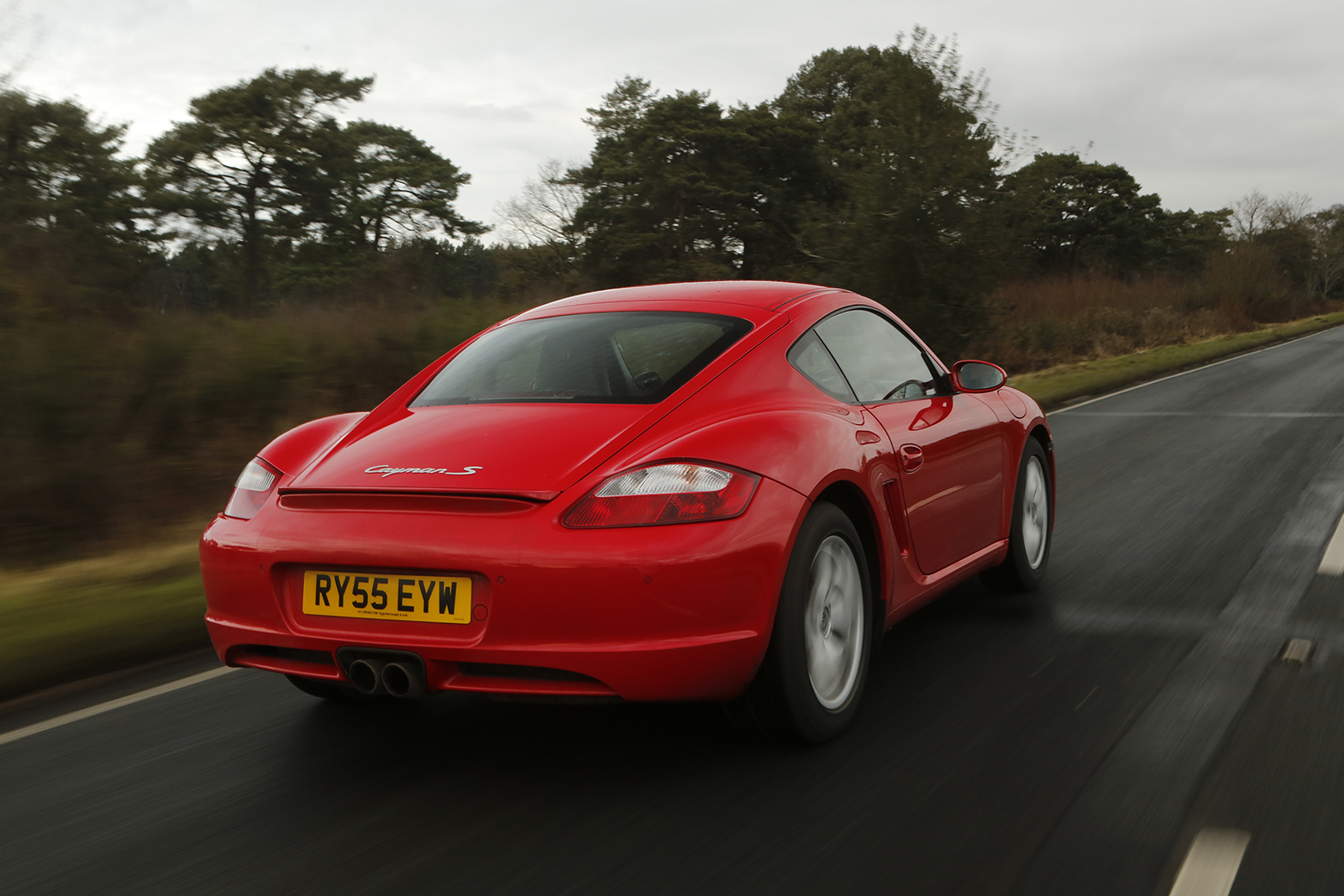
Pros
Supreme handling
Characterful engine
Superb value for money
Cons
Not practical
Servicing is pricey
Annoying shift buttons for autos
Price range: £7000 – £30,000
The Porsche Cayman sits on many an enthusiast’s shopping lists – and for good reason. Here is a modern flat-six Porsche coupé that has the engine in a sensible place, meaning you can take liberties that you just can’t in a Porsche 911 of the same vintage.
The precise six-speed manual gearbox brings all the delights of an analogue driving experience, especially as it’s teamed with well-weighted pedals. And it’s agile, keen to change direction and importantly, accesible to the average driver.
Sure, the PDK automatic added with the car’s 2009 facelift may grant you access to its engine’s full potential, with lightning-fast shifts, but you also have to deal with hateful little shift buttons positioned on the face of the steering wheel.
Opt for an earlier auto Cayman and you also have to put up with the slow-moving Tiptronic S auto, an old-school five-speed torque-converter. It’s best avoided.
The 3.4-litre 291bhp S (whose powerplant derived from that in the contemporary 911 Carrera) kicked things off, but a more affordable 2.7-litre unit with 242bhp was introduced soon after launch. From 2009, the 2.7 was replaced by a new 2.9 with 261bhp, while the 3.4 was cranked up to 315bhp.
The 3.4 offers better value for money but suffers from bore scoring, which can be incredibly costly to put right. It’s worth having a specialist perform a borescope to check for the ailment before or soon after you buy.
And that’s only relative value for money. Can a Cayman ever be a low-cost Porsche? Pull the other one. There’s no such thing. This car has a two-year/20,000-mile service schedule, but experts recommend an annual check-up. New brake discs and pads will broadly cost around £2300.
It is effectively a coupé version of the Porsche Boxster, and at launch the S was around £5000 more expensive than its rag-top brother. Prices previously reflected that, but now they’re getting closer to parity.
Read our Porsche Cayman review
Finance this car with Drivenfi
Latest Reviews

Volvo V90
8

Alpine A390 prototype review

Tesla Model Y

Used Fiat Panda 2012-2024 review
8
Used Fiat Panda 2012-2024 review

Renault 5
9
Read our review
Car review

Used Mercedes-Benz CLS 2011-2018 review
Does the Mercedes CLS lead the four-door coupé pack?
Back to top
2. Mercedes CLS
9
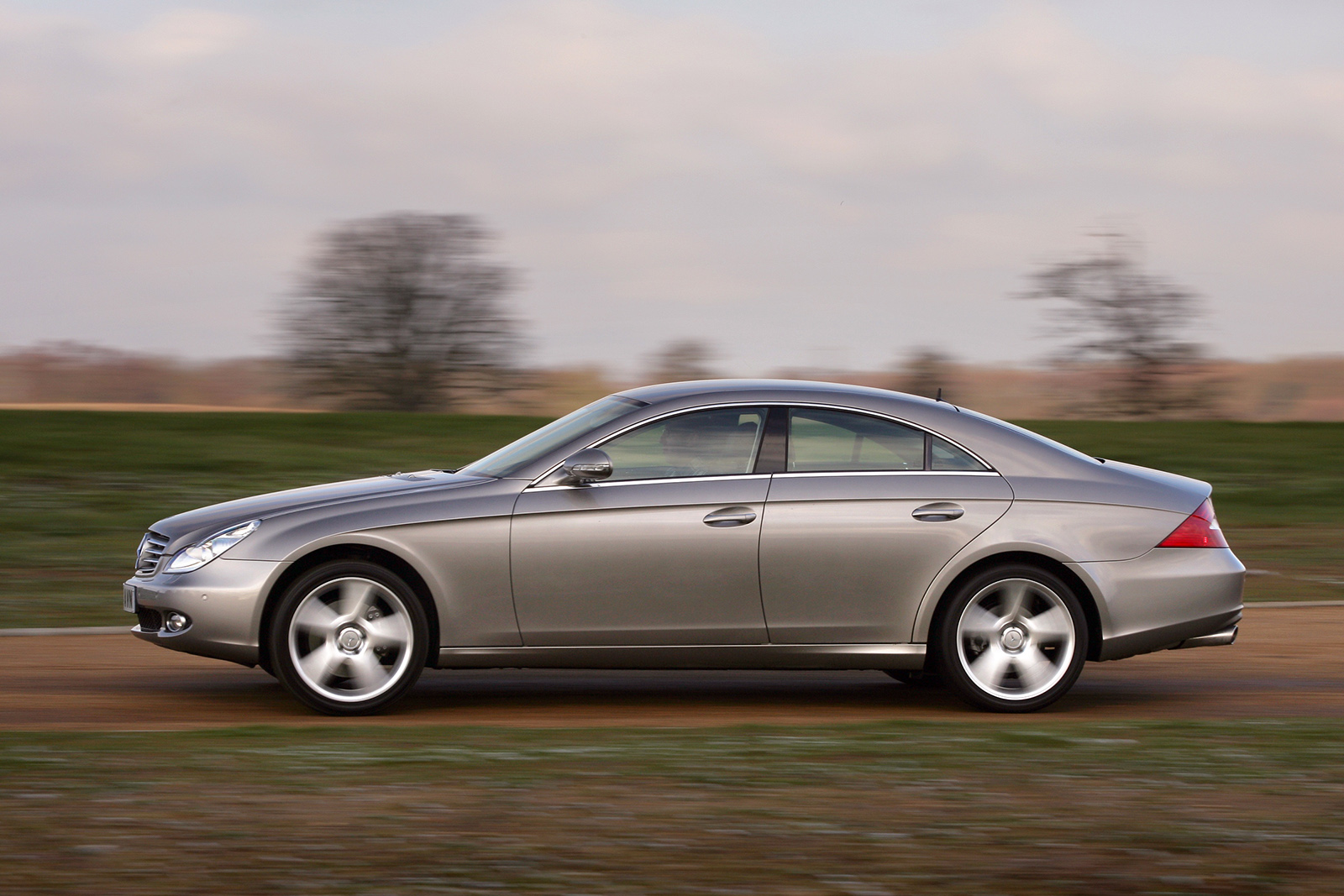
Pros
Looks even better now than it did at launch
Powerful engines
Sweet automatic ‘box
Cons
Luxury car with luxury problems
Expensive issues with petrol cars
Not cheap to run
Price range: £2500 – £10,000
A four-door coupé is about as much an oxymoron as the term ‘modern classic’. Yet Mercedes created an instant icon with its E-Class-based CLS.
Its curvy body was unlike anything else on the road at the time, yet it managed to retain Mercedes’ hallmark quality and sensibility.
All versions came with rear-wheel drive and a seven-speed automatic gearbox, while air suspension was an option.
Standard equipment included part-leather trim, electrically powered front seats, climate control, adaptive cruise control and parking sensors.
Today, like many used luxobarges, CLSs are cheap. And like many other luxobarges, they have numerous problems to contend with.
The main issues are the balancer shafts on early petrols, the gearbox speed sensor on petrols and diesels and the diesel engines’ inlet port shut-off motors. One dedicated owner told us he would stick clear of early petrol cars entirely.
Read our Mercedes CLS review
Finance this car with Drivenfi
3. Ford Fiesta ST
9
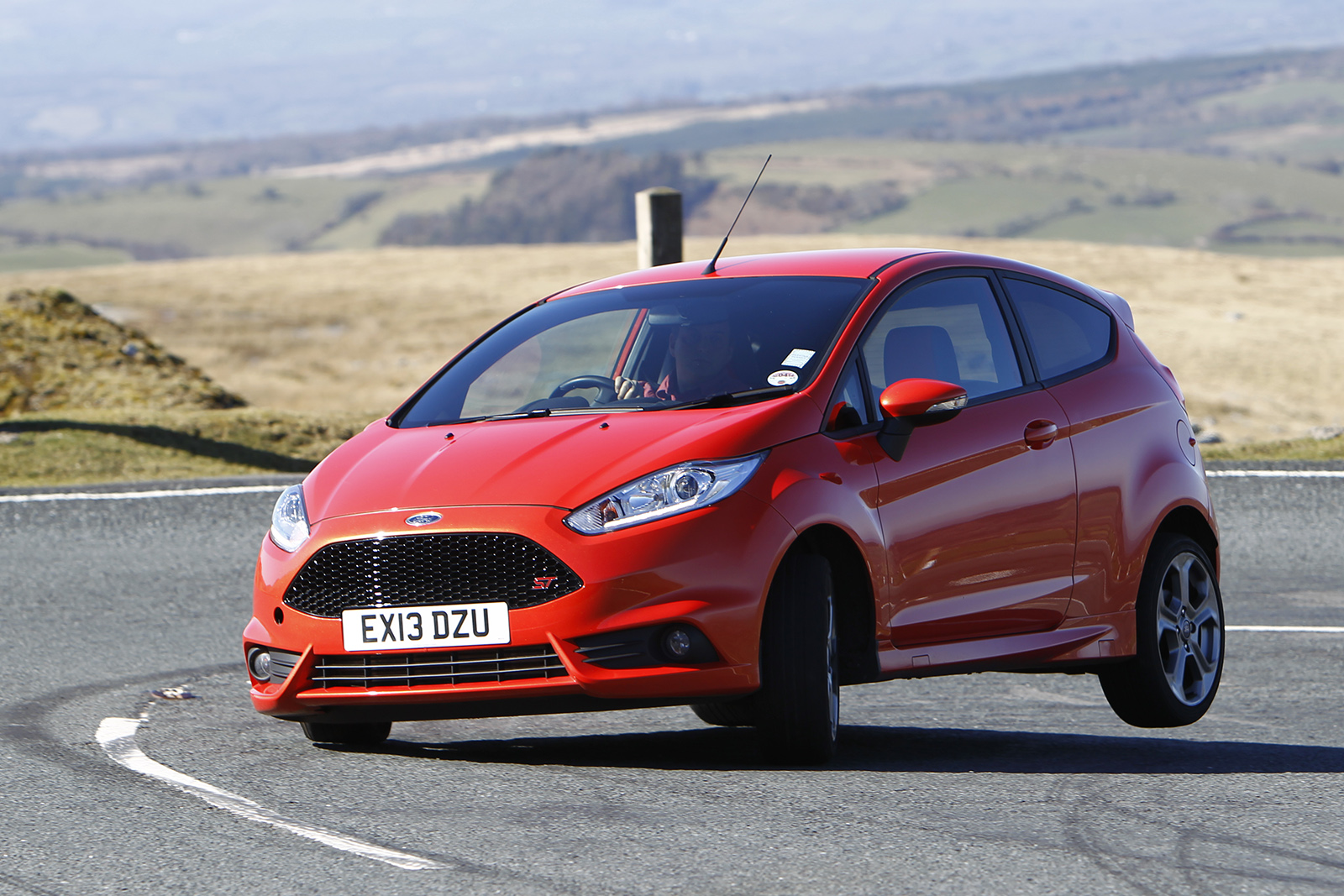
Pros
Excitable engine
Dynamically well sorted
Still a practical hatchback
Cons
Some will have been abused
A few engine issues
Whiff of Halfords about it
Price range: £4000 – £10,000
Performance models from the Blue Oval have delighted and titivated generations of Brits. And today the MK7 may well just be the best value fast Ford on the market.
There’s an air of honesty with the Mk7 Fiesta that other performance cars can’t quite offer. You can understand what your extra cash buys you compared with the humdrum hatch.
Chiefly it gets you an excitable turbocharged 1.6-litre four with 179bhp or 197bhp.
The chassis has amazing balance, the shift of the six-speed manual is without fault and the steering is almost telepathic. There really are very few cars as fun as this for as little as this.
The big thing to keep in mind is that many of these cars will have been modified. We will refrain from sounding like your mother here, but listen and feel for shudders when changing gear. This might be because of worn synchro rings, caused by a swap from dual-mass flywheel to a single-mass one.
For the full-fat 197bhp engine, you will need to go for the ST200 special edition. These models are rarer and more expensive, and you should really ask yourself how bothered you are about an additional 18bhp.
Read our Ford Fiesta ST review
Finance this car with Drivenfi
Back to top
4. Mazda MX-5
9
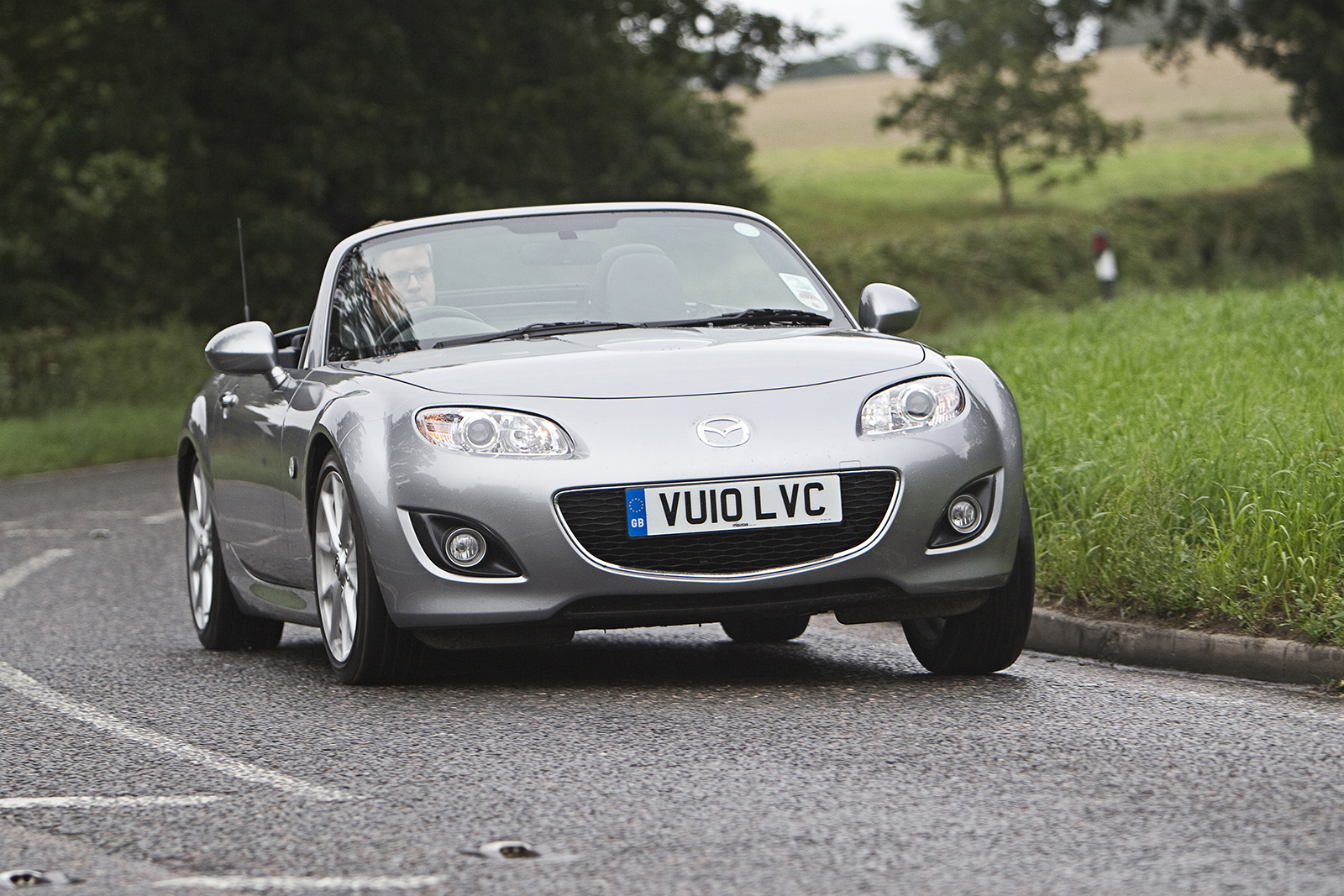
Pros
Great to drive
2.0-litre version gets a limited-slip differential
Reliable
Cons
A bit too grown up for an MX-5
A bit rusty
1.8-litre version isn’t fast
Price range: £1500 – £10,000
Hold onto your hats, folks, and not just because we’re writing about a convertible. We’re now recommending the third-generation (NC) Mazda MX-5.
Historically this era of Hiroshima’s drop-top has been a bit unloved. It didn’t quite capture the imagination like the first two generations. It seemed, if anything, slightly too refined.
Over the years, though, feelings and perceptions change, and the NC is fast becoming a sensible buy, due to it being better built than the first two generations (NA and NB).
There are two engine choices to get you going. A 125bhp 1.8-litre or a 158bhp 2.0-litre that also usefully comes with a limited-slip differential and a choice of five- or six-speed manuals, depending on trim. The latter is a bit more money, but we think it offers better value, all things considered.
Opt for a 2009-on facelifted car and the steering is precise and communicative, the chassis fluid, the ride comfortable and the engine bulletproof. There’s not a lot to look out for.
The first two MX-5s famously suffer greatly from rust, and while the third isn’t as bad in this regard, you should still check under the bonnet, around the boot and on the chassis.
Read our Mazda MX-5 review
Finance this car with Drivenfi
5. Jaguar XK
9
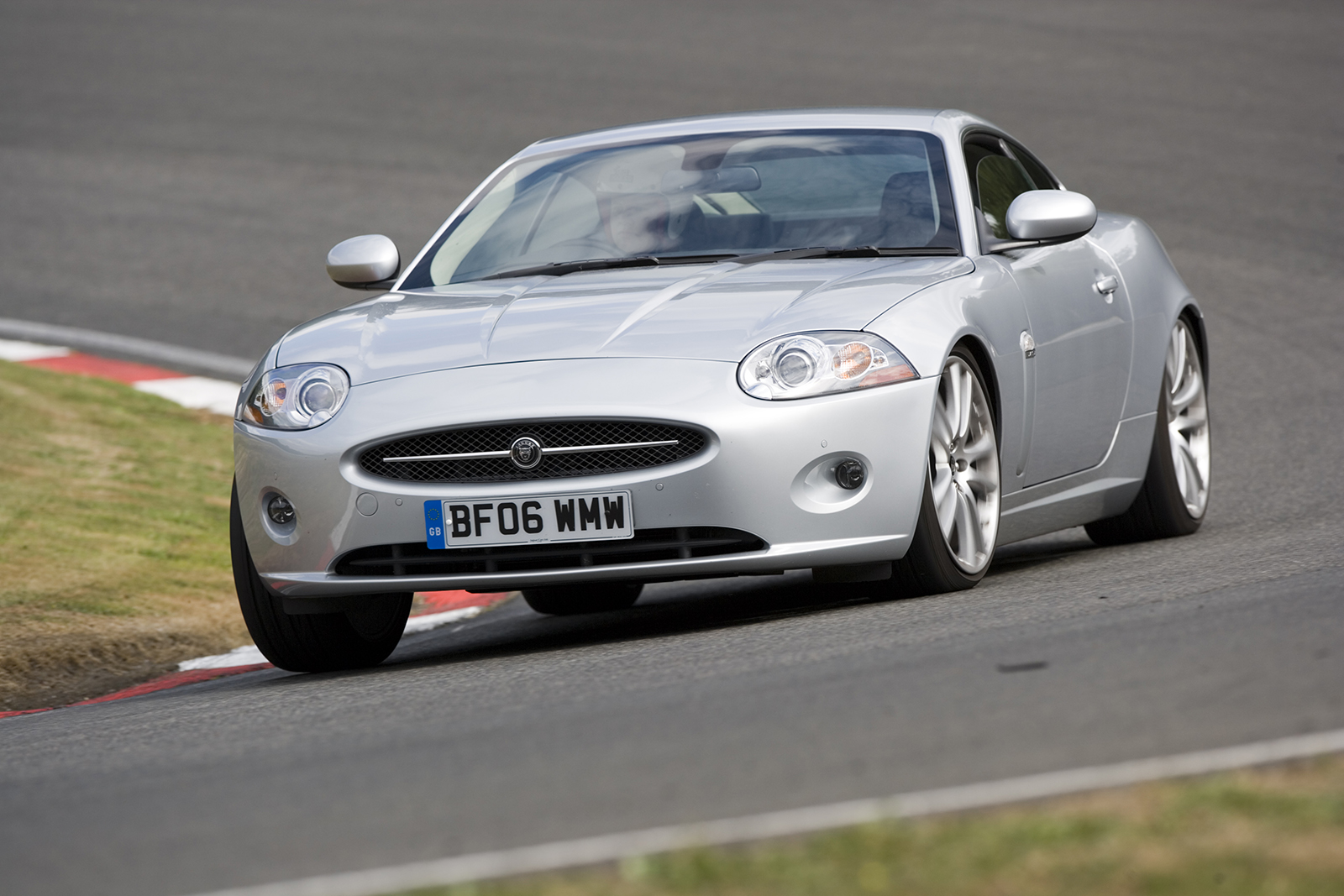
Pros
Sledgehammer V8
Excellent ride quality
Practical for a coupé
Cons
Sealed-for-life gearbox isn’t sealed for life
Active suspension tricky to fix
Facelifted car a touch awkward-looking
Price guide: £5000 – £30,000
A British V8-engined coupé with an aluminium monocoque – and wood, and leather.
The Ian Callum-penned XK came after the XK8, a firm favourite among the modern classic community. And now the XK is beginning to wow this fraternity too.
Pre-facelift models used the same 300bhp 4.2-litre V8 as the XK8, whereas post-facelift cars upped the ante with a 380bhp 5.0-litre V8.
Supercharged R models exist (420bhp or 503bhp) of both too. Then there’s the XKR-S, which turns the state of tune up to 542bhp.
The post-facelift car is worth it, as the new engine is both smoother and keener to rev.
Best of all, the XK is pretty impressive as an everyday car. The rear seats obviously aren’t stellar, but up front even tall (6ft 5in and above) people can certainly get comfy, and it’s reasonably economical.
The ZF eight-speed automatic gearbox is ‘sealed for life’, but it’s recommended that it gets serviced at 80,000 miles.
Facelift models received Jaguar’s Computer Active Technology System (CATS), with Comfort and Sport settings. It works brilliantly, but it’s worth remembering that it’s ultimately something else that can go wrong.
Read our Jaguar XK review
Finance this car with Drivenfi
Back to top
6. Lotus Elise
8
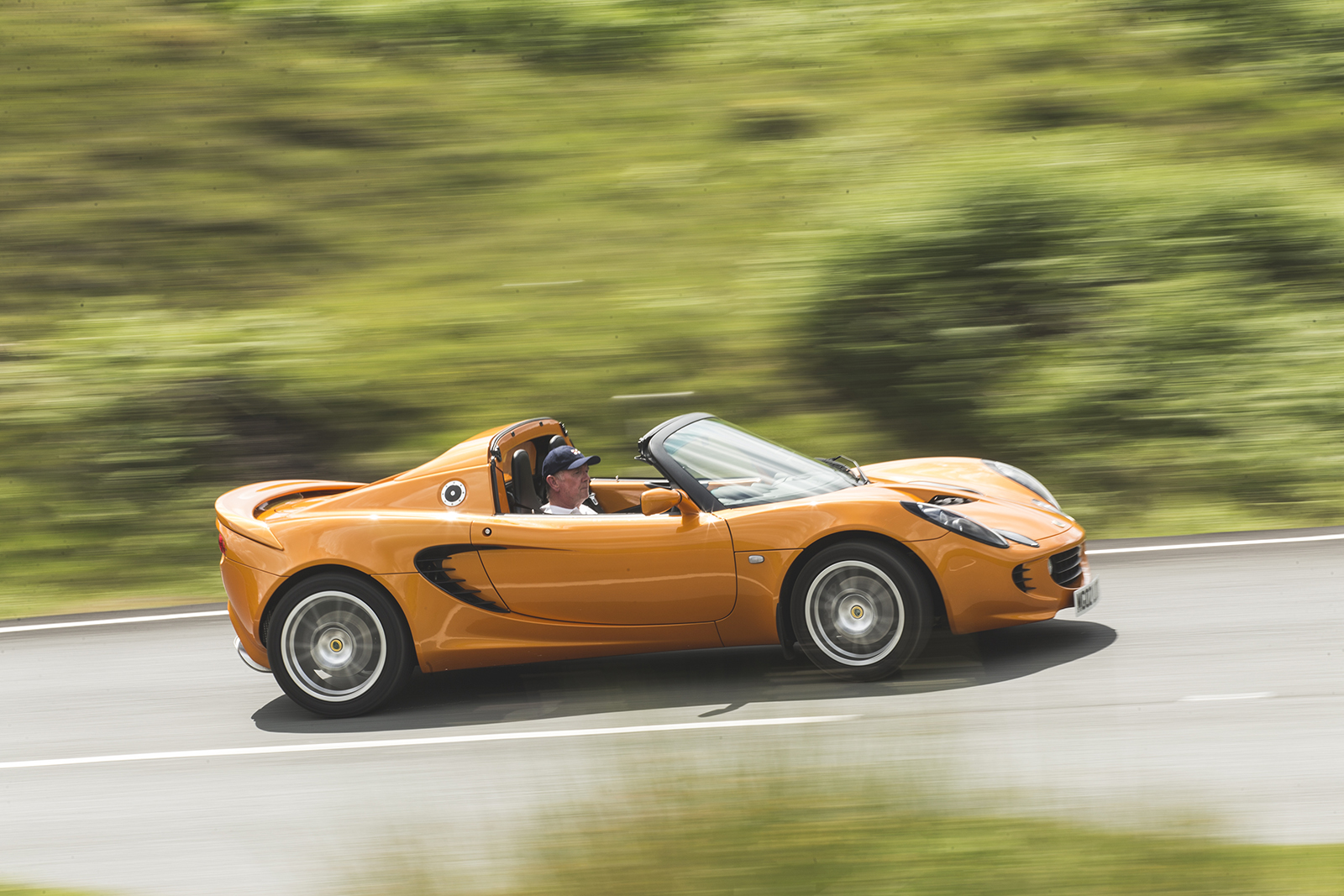
Pros
One of the best sports cars ever
Toyota engines are reliable
Simple interior
Cons
Early cars still have Rover K-series engines
Regular maintenance
Tricky in the wet
Price guide: £10,000 – £50,000
Yes, the Elise Series 2. These are getting on for the same money as Series 1s now, and while to some eyes they don’t look quite as cool, as retro or as sweet as the earlier models, they do have one huge improvement: the engine.
This writer has only ever driven a S1 once, and the Rover K-series lump decided that it was simply too hot and bothered to maintain the arduous task of housing coolant.
Yes, a lot of you reading this may have a perfect K-series engine that has been to the moon and back without needing a head gasket replacement, but a lot of people haven’t had that experience.
Lotus saw fit to replace the K-series with Toyota’s 1.8-litre ZZ-GE engine in 2004, but it’s important to remember that the 111S K-series was still around until 2006, when the Elise switched totally to Toyota power.
Read our Lotus Elise review
Finance this car with Drivenfi
7. Porsche 911
8
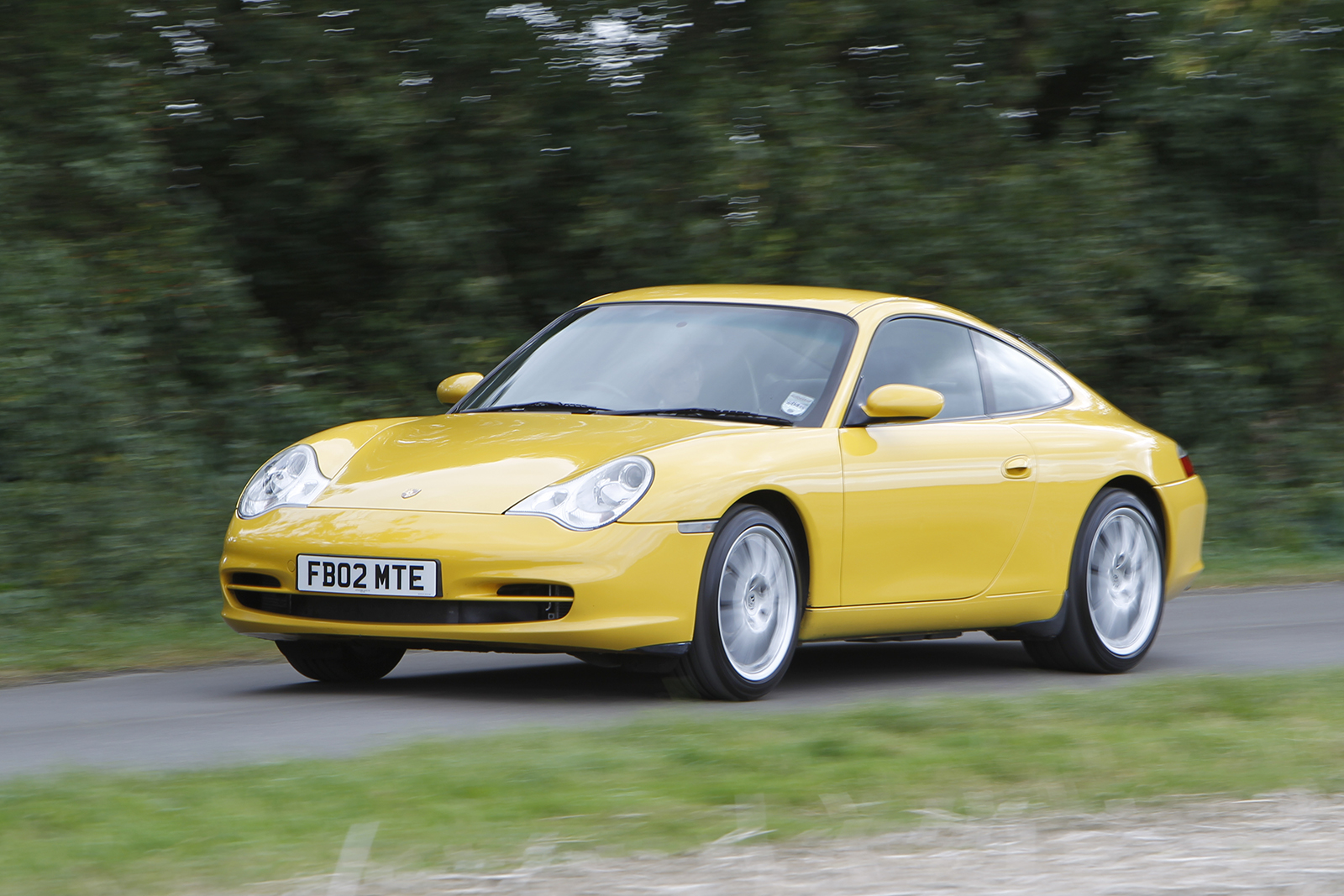
Pros
Lots of variety
Sweet handling
Everyday usability
Cons
A few expensive faults to look out for
Finding one with full history can be tricky
Not air-cooled
Price guide: £10,000 – £70,000
This is a hugely significant car, especially in the realms of classic-versus-modern debates. It’s the first of the water-cooled 911s, so what some classic car people might refer to as a betrayal.
Fortunately for us, this has somewhat kept prices of these 996-generation cars down, and they’re among the best value on the market.
At launch, this 911 came in coupé form only, powered by a 3.4-litre flat six producing 292bhp and with a choice of six-speed manual or five-speed Tiptronic automatic gearboxes. It was followed by high-performance models with ‘Mezger’ engines.
First was the 355bhp GT3 , then came the 408bhp Turbo, and topping them off was the 456bhp GT2.
A 2002 facelift retired the 3.4 for a 312bhp 3.6 with Porsche’s Variocam 2 variable valve timing. The ‘fried egg’ headlights were also dropped in favour of the ‘teardrop’ style.
Big-boy cars have big-boy problems though. You may have read stories about rear main seal (RMS) issues, cracked cylinder heads, intermediate shaft (IMS) failures and split cylinder liners. These are all relatively rare and there are provisos, but they still exist, and you should still approach with extreme caution.
It should be noted that the Turbo got the uprated ‘Mezger’ engine that powered Porsche’s GT1 racers to success so doesn’t suffer from the same failure points. It’s still worth a thorough inspection, however.
Read our Porsche 911 review
Finance this car with Drivenfi
Back to top
8. Alpine A110
8
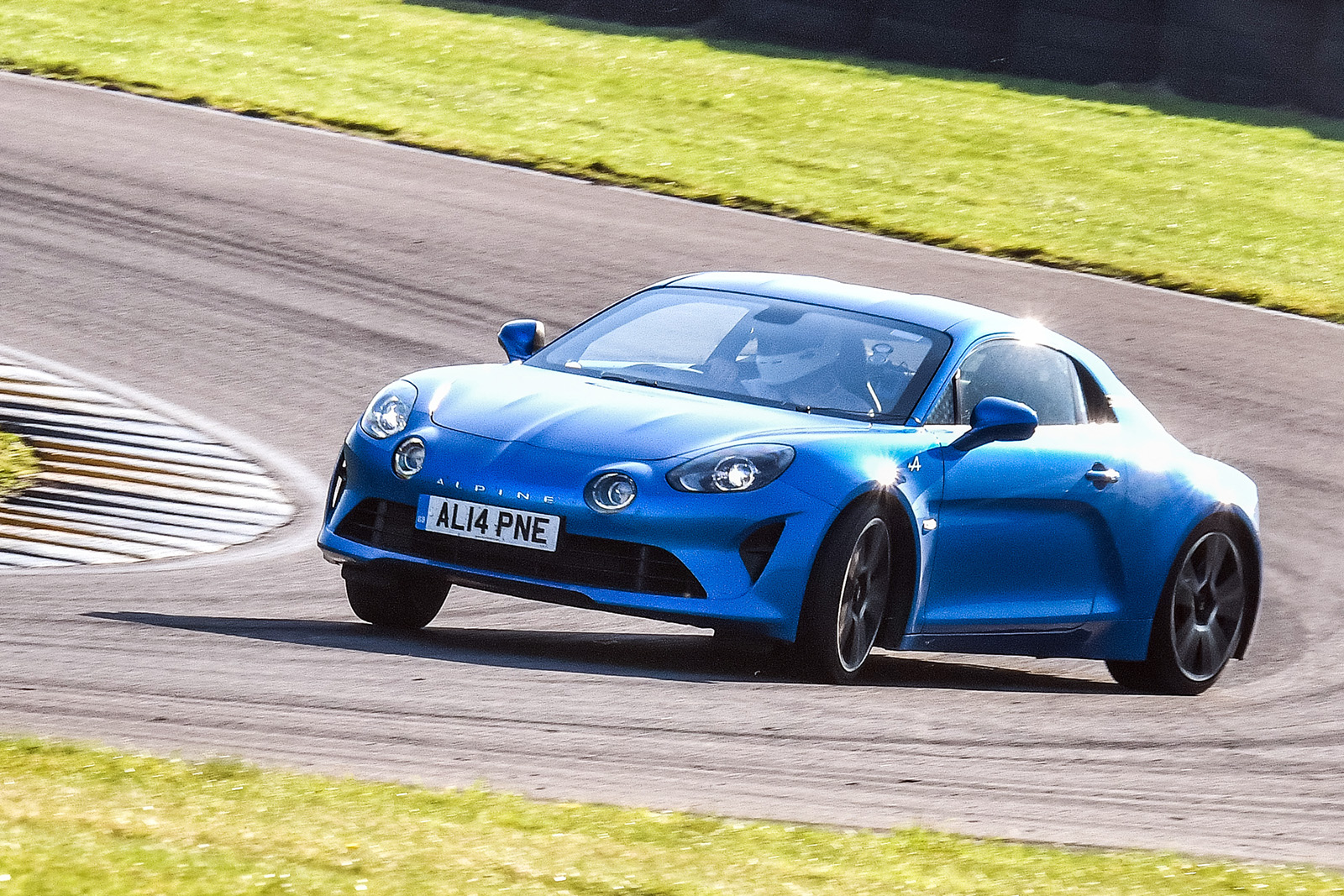
Pros
Accessible handling thrills
Huge character
Scintillating real-world pace
Cons
Steering not quite as brilliant as the chassis
Naff interior
Lack of dealer network
Price guide: £35,000 – £60,000
A surprise one here, mostly because you can still buy an A110 new. But this has a bona fide classic car written all over it – not only because of its poise, but also because of its past.
The original A110 was made between 1963 and 1977. It won the the inaugural World Rally Championship in 1973, inspiring youngsters in their thousands.
Youngsters who would grow up and perhaps have a bit of spare cash floating around in the 2010s when Renault relaunched the Alpine brand and the A110 nameplate.
Chatter of a mid-engined Renault was realised fully in 2018. Initial reviews said it was fantastic. Then follow-up road tests said it was even better. We certainly gave it five stars.
Today used A110s are still strong money, because they depreciate slowly.
Lots of options and special editions have come throughout the years.
Owners are yet to report too many faults yet, not unusual considering the age of the cars. But you should bear in mind the UK dealership network isn’t massive and the infotainment system is naff.
Read our Alpine A110 review
Finance this car with Drivenfi
9. TVR Tuscan
7
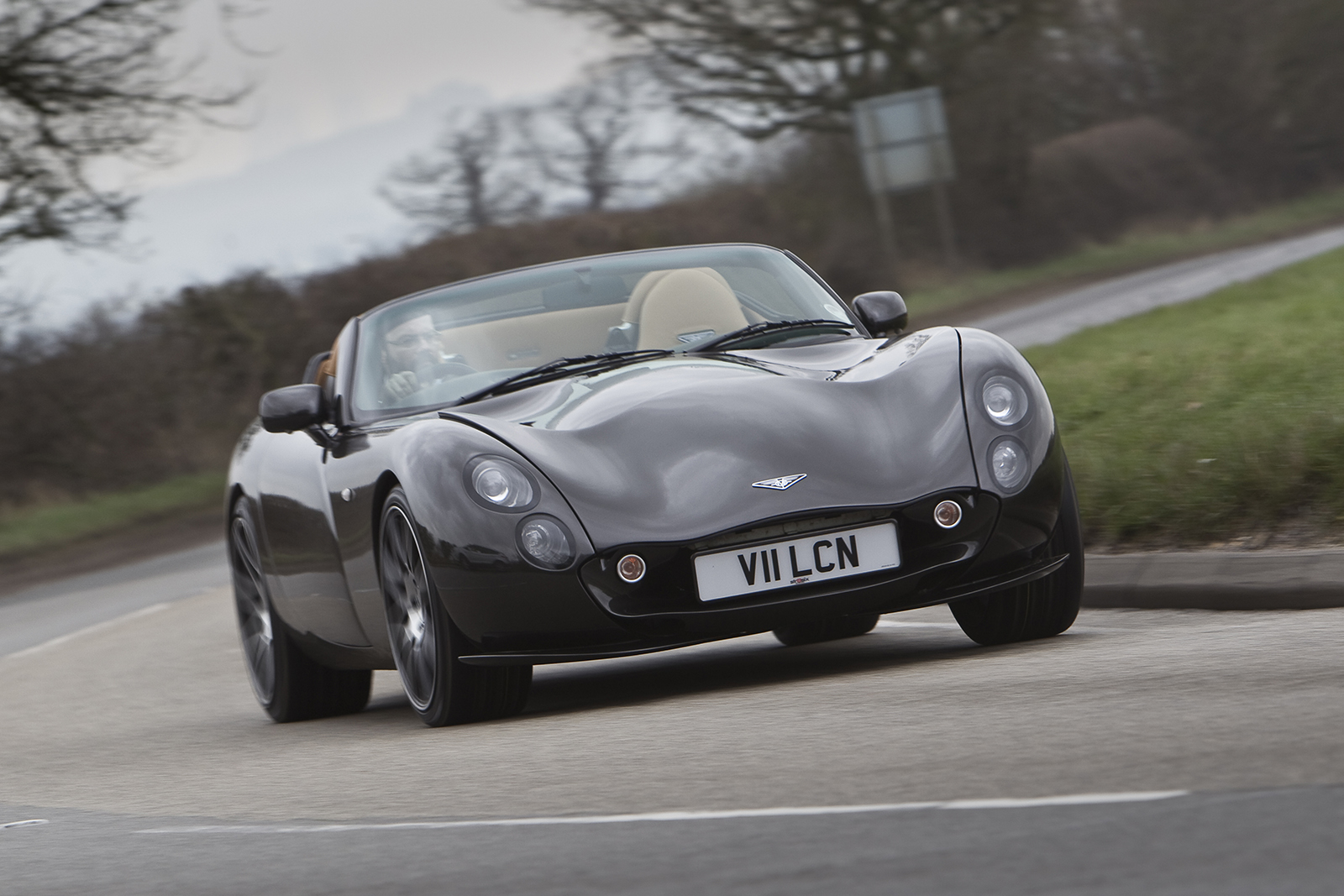
Pros
A joy to drive
Delightful straight six
Practical enough for a two-seater
Cons
Lots of maintenance
Lots can go wrong
Over-enthusiastic previous owners
Price guide: £15,000 – £60,000
Not the most reliable car on this list. Not the most reliable car on most lists. But perhaps the most fun one, with the most wow factor.
TVR touted the hard-topped two-seat Tuscan with a surprisingly large boot as its most usable creation to date – and it was, when it worked.
The straight-six engine (stylised Speed Six) was designed by Al Melling (a man who ran a women’s fashion label and helped design Formula 1 engines) and built by TVR.
There was a 3.6-litre producing 350bhp and a torquier 4.0-litre with 360bhp. There was also a so-called Red Rose 4.0 with 380bhp, but the most sought-after engine is the 390bhp 4.0 S.
You will struggle to find a Tuscan in original condition. Most have been upgraded and are probably running either a rebuilt or refurbished engine and transmission, along with uprated brakes, suspension and ancillaries.
How the car has been maintained and who has done what are the most important parts of the service history.
Shutlines on the glassfibre body should be good and consistent. If they’re not, it might have been involved in a smash.



